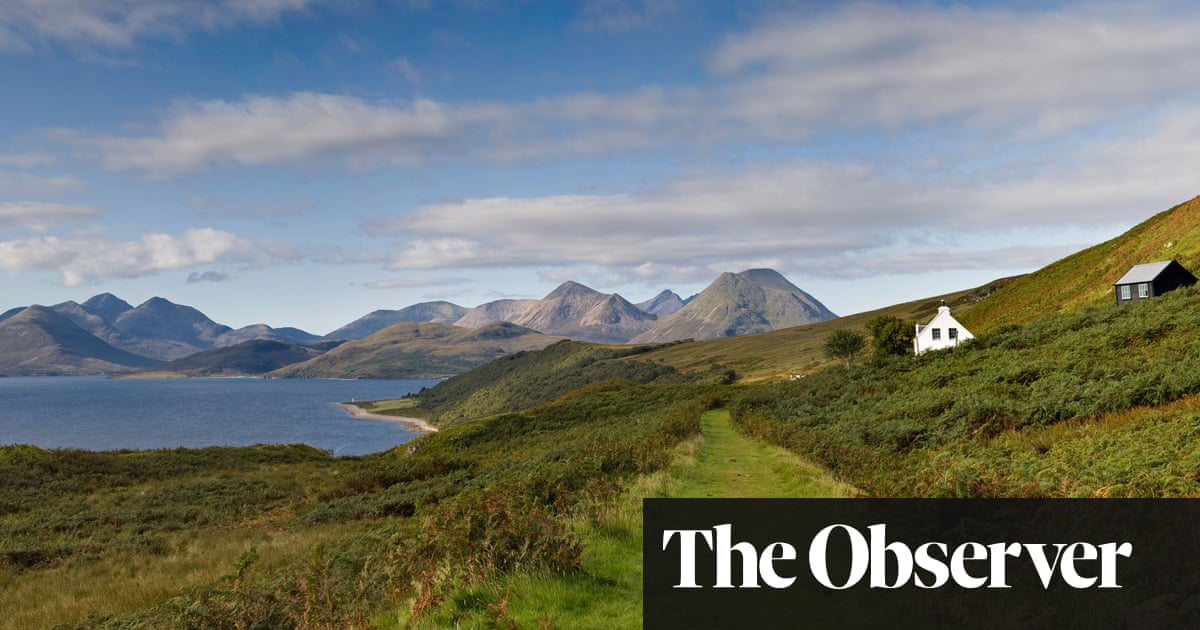
An appeal has been issued for women to stand as councillors in the Western Isles in 2022 in an effort to end the Hebridean islands’ unwelcome status as the only Scottish authority with an all-male council.
Islanders and equality campaigners were stunned in 2017 when none of the seven women who stood were elected for the Western Isles. Only one, an incumbent, came close to winning a seat in the 31-member authority.
Alarmed officials on Comhairle nan Eilean Siar, Gaelic for the Western Isles council, are staging an online workshop in January to persuade more women to stand in May’s elections, in concert with Elect Her, a group specialising in combating gender inequalities in government.
Nearly 20 women have signed up for the workshop, and for many involved it has raised deeper questions for the authority, its leadership and the community as a whole.
Western Isles has been the only all-male council in Scotland, and possibly the UK, for nearly five years. “It’s always concerning when a large sector of the population is unrepresented,” said Malcolm Burr, the council’s chief executive. “When our all-male comhairle was elected in 2017, we thought: this isn’t wholly representative of the community, what should we do about it?”
Paradoxically, voting rates for Western Isles council elections are among the highest in Scotland. Women are prominent and influential leaders in community and business life, yet only a handful ever win seats. The peak was five in 2007. Few stand for election.
One barrier is the ban on council employees being elected to the same authority, to prevent conflicts of interest. On the mainland, councillors can work for a neighbouring authority; in the Outer Hebrides, that is impractical. Western Isles council is the largest employer, with 2,185 staff for a population of 26,500; in many roles, most employees are women.
Burr said the rules now allowed a council employee to stand for election. But they would have to quit their council job if they won, exchanging the security of a career, fixed hours and a public-sector salary for the £18,604 a councillor earned, with no guarantee of re-election.
Zena Stewart, a former councillor who topped her ward’s election in 2012, only stood after retiring from the Nicolson Institute, the secondary school for Lewis, partly for that reason. “If you’re being paid as a councillor, there’s more asked of you,” she said. “I had to attend every meeting unless there was an obvious reason why I couldn’t.”
Katie Laing, a part-time teacher, journalist and vice-convener of Stornoway community council, said that was a significant obstacle, in particular for women with children.
In addition, a large majority of Western Isles councillors traditionally stand as independents, limiting the scope for positively discriminating in favour of female candidates – a strategy routinely used by political parties in mainland elections. Campaigners say that amplifies the importance of already powerful institutions such as the church – candidates known to local congregations have a ready-made electorate, and men dominate many Hebridean churches.
Stewart said councillors connected to churches often won because they had earned respect; the same could apply to golf club leaders.
Agnes Rennie, a community leader who also won election in later life, said councillors were expected to be present at key community events, involving long distances and late evenings away from home. For women with families, that burden could be onerous. “You are measured against whether you’re there or not,” she said.
For some women, there was the perception council life was unjustifiably combative and toxic, said Laing, particularly in a small island community where conformity could be harshly policed.
Rennie said much greater emphasis on flexible meeting times, video conferencing and policies allowing absences for those with family responsibilities was needed. So, too, were visible role models so “women can imagine themselves in that role. It’s a big step for many people,” she said.
A long tradition of community leadership and voluntary work meant women “have tremendous skills and experience that would bring so much to the role; I have no doubt women bring a different perspective”, she said.












